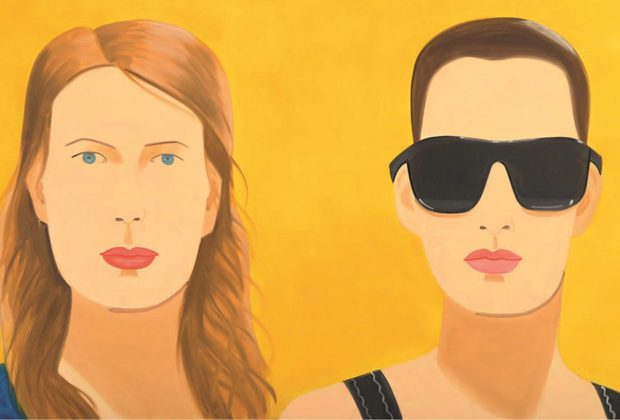Thought and action. We still tend to think of life in these terms. An action is a fact. What someone does is observable, documentable—it becomes evidence, then, what someone did. And when you lay enough of these evidentiary moments in a series, over time, you get a story. The kind we’ve been telling each other for millennia.
But a good story, of course, is just as much about the why as it is about the what. Why did she do that? Why did he go there? A why, that is, which takes thought as its object. An action is either thoughtless—in which case we call it impulse or instinct—or it is thoughtful. In the latter case, there is presumed to be a moment or series of moments, prior to an action, when it was contemplated, weighed against other actions (or inaction), and even planned. A moment of thought, perhaps prompted by some external event or new insight, tends to precede this kind of action. We use and encounter this simple and essential storytelling structure all the time.
However, we also know, intuitively, that describing what characters do and why they do it is not the only way to generate forward movement in a story. What makes a great story seems to involve something more: not just thought and action, but also interaction. A simple conversation between two people—or three or four—can alter the pace, the direction, and the drama of a story. A couple of Tolstoyan characters, for example, might spend the better part of 40 pages on either side of a samovar, and though not much will have happened, a lot will have changed. Certainly, thought and action play a role in conversation: speaking is an action, and during a particularly slow conversation each participant may even have some time to think carefully before saying something.
But there’s something else that can happen within a conversation, and authors like Tolstoy and Sally Rooney know it well. As a conversation (at the dinner table, say) heats up, it creates a space in which thought and action lose their causal relationship and seem to merge. Ideas and replies are offered by one speaker as soon as another is finished. It happens quickly, in other words, though we wouldn’t call even the most rapid repartee thoughtless; rather, what is spoken is the thought. And these thought-comments, offered by each participant, color and texture the conversation like some increasingly complex concoction. When a character becomes self-conscious about what she’s said, and suddenly feels removed from her conversant self, the distinction between the kind of contemplative thought we’re used to and the more tangled thought-action composite that emerges during conversation becomes clear.
When a conversation ends, something has been created among the participants. And this creative power of discourse is at the heart of Sally Rooney’s debut novel, Conversations with Friends. The story follows close friends Frances and Bobbi—both poets and students at Trinity College in Dublin—as they develop a complicated and, in Frances’ case, adulterous relationship with an older couple, Nick and Melissa. As the novel unfolds over countless conversations and debates between and among the principal characters (and their friends), Rooney develops a rich and layered account of love, friendship, and communication.
Rooney, who is 26 years old and hails from the west of Ireland, released Conversations last May, and has since become something of a literary phenomenon. She won the 2017 Sunday Times Young Writer of the Year Award—an honor also given to Zadie Smith for White Teeth 16 years earlier—and was recently named an editor at The Stinging Fly, an Irish literary magazine.
I spoke with her about Irish literature, political commitments, and conversations—among other things. I came out of our exchange having learned a lot, and even changed a little.
*******
How old were you when you started working on Conversations with Friends, and how long did it take to complete?
I was twenty-three when I started writing the novel in October 2014. It took me a few months to finish a first draft – writing very quickly and quite badly – and then another year or so to re-write and edit the manuscript. I submitted the manuscript in March 2016.
More generally, in what ways did you feel as if you were writing yourself into the novel, if at all?
In a few different ways, I think. For one thing, the social environments in the book are mostly drawn from real social environments in my own life. This is all fairly obvious – it’s not a secret that I live in Dublin, that I attended the same college as Frances and Bobbi, or that I’ve been to literary events. These were the settings I felt comfortable writing about, because I’d been observing them for long enough to have an idea of how they worked. I think people are ultimately pretty community-oriented in the way they live their lives, and it would be very hard for me to write about a group of people whose community I fundamentally didn’t understand.
In another sense, I found myself drawing fairly frequently on my own personal experience of human consciousness, for the simple and regrettable reason that I am the only person I have ever been. When I wrote my characters into difficult situations, I could really only rely on my own intuitions and reflexes to sense how they might respond. I generally find other people much more interesting than I find myself, but like all of us I had to work with the consciousness I was given.
I didn’t use many actual occurrences or events from my real life, or if I did, they were unrecognisable to me by the time they ended up on the page.
Communication—both the medium through which it is achieved and the extent to which it can generate mutual understanding—is of course central to the book. But it is also invested in a critique of capitalism, bourgeois morality, and the question of privilege, among other things. Was there a function you envisioned for the novel, along these lines of critique?
I don’t think I saw the novel as having a political function along those specific lines – that is to say, it’s not a didactic book, and I didn’t see it as an intervention in any particular ideological dispute. Certainly it has some political content, because our everyday lives are helplessly caught up in systems of political power, and it’s not possible to write a novel (it seems to me) without observing that in one way or another.
But if I’d wanted to write a critique of capitalism, I wouldn’t have veiled it in a novel about relationships. To be simplistic about it, politics isn’t only a question of what we fight against, but also what we’re fighting for: among other things, the possibility of happiness and fulfilment. I find a lot of joy in writing and reading, and that seems to me something worth defending, and maybe a necessary consolation in the current times.
To what extent did you feel like you were writing an Irish novel? How does the cosmopolitanism of Dublin and of Trinity complicate this?
The cosmopolitanism of Dublin only complicates the Irishness of the book insofar as we continue to imagine Ireland as an essentially anti-cosmopolitan space. But do we have to? Is anywhere with broadband internet truly safe from the tide of cosmopolitanism? I grew up in a small town in the West of Ireland in the 1990s, and I was listening to American music and watching American TV shows just like everyone else. I couldn’t write anything other than an Irish novel, because I’ve never lived anywhere but Ireland and the book is set in Ireland with an all-Irish cast of characters.
I have heard from certain readers, usually from the US, that the book does not seem sufficiently Irish, or that the Dublin in the novel may as well be Brooklyn. To take this criticism more seriously than it might deserve, it seems less a critique of my book and more an observation about the extent to which US global hegemony has attenuated individual national cultures worldwide. It may (or may not) be a shame that Ireland isn’t what it used to be, but I feel like it’s probably not my fault.
What is ‘Irish’—to Americans, say—is more often a kind of trope-based essentialization than an informed characterization of a literary genre. The absent or delinquent father, for instance, is both present in Irish literature and used negatively to stereotype Irish culture. What were your motivations for writing one into the story, and how do Frances’ familial relationships operate as a critique of patriarchal society in the novel?
You’re absolutely right to point out that the figure of the absent or misbehaving father is an Irish stereotype, but it’s also a trope used to stereotype a lot of minority cultures historically. Some of that probably stems from the real-world effects of economic and social deprivation, as they intersect with masculinity.
If I am making a critique of patriarchal society in the novel, it’s partly by observing how patriarchy injures men, emotionally and morally. Men are not made personally powerful by the gender system – on the contrary, it seems to me that men are empowered as a class but often pathetically disempowered as individuals. I mean, boys and men are more or less expected to pursue interpersonal dominance in every area of their life, at almost any cost. What kind of life is that? What kind of insecurity and self-loathing does that provoke in a normal human being? Of course you can say, women are expected to put others first constantly and that can be burdensome too, and I agree it can. But I honestly believe it’s easier for women to develop healthy relationships, to express and receive affection, to co-operate with others, and so on. I guess you could say these are things we don’t value very much in a market economy, but to me they seem like the basic materials of a happy life. So if the novel contains a critique of patriarchy, it’s about what patriarchy does to the quality of intimacy between men and women.
As a book about conversations, the novel examines the various mediums through which communication takes place, most notably on messenger, over email, on the phone, and (of course) in person. I haven’t encountered many novels that take all of these forms into account, though it is an accurate representation of our time. Did you feel in any way like you were writing a “millennial” novel?
I’m sure it is a “millennial” novel, in that I am a millennial and so are almost all the characters. And I suppose on a level I feel some generational loyalty, because I think the fallout of the 2008 economic crisis has been particularly difficult for the generation that came of age around that time, and are now finding that state services have deteriorated at the very same time that secure and comfortable jobs have become extremely scarce. Having said that, as a Marxist, class is the fundamental framework of analysis for me. Our parents’ generation did not universally “cash in” on the relatively good times that preceded the 2008 recession – working class people never meaningfully cashed in at all.
As for the forms of textuality that are incorporated into the book, I guess those things are just interesting for me on the level of words and language. Just like early novels drew on letter-writing, it seems natural to me that contemporary novels would draw on emails and instant messaging, because those are the predominant forms of communicative text now. I’m interested in “email voice” and the extent to which that’s replicable in a “literary voice”. But ultimately I enjoyed incorporating texts and emails into the book – not so much as an experiment or a commentary, but because I like reading and writing emails and texts in my normal life too.
Most interesting to me are the moments that explore Frances’ interiority while conversations are happening. She is at certain times self-conscious of what she’s saying and how she sounds or looks while she’s saying it, and at other times more empowered to dominate the interaction. Could you talk a bit about how the power dynamics within an interaction relate to those that are present within a wider relationship between two people, and how they drive movement and decision-making in the novel?
Most of the book concerns power dynamics in one way or another, so this is a complex question to answer! I don’t think I was trying to say anything specific about power within relationships, I was probably just trying to observe it in as much detail as I could. Whether or not I was successful in this project isn’t really for me to say.
It seems to me that there is no such thing as a relationship without a power dynamic; some are just healthier than others. As a writer I suppose I’m interested in power dynamics that are slightly off equilibrium. Completely one-sided relationships, in which one party has all the power, are not very interesting for me – there’s rarely much development in there and the potential for life-changing joy or happiness is low. Likewise entirely balanced and healthy relationships, while praiseworthy in real life, don’t yield much narrative momentum for the novelist. So in fiction I’m always looking for relationship dynamics that offer a glimpse at real intimacy and happiness, but are also subject to frustration and misunderstanding. As a matter of personal taste that’s the stuff that interests me.
In a given relationship, then, how are things like happiness, frustration, and misunderstanding modulated by the medium of communication being used? Some of the more empowering interactions for Frances seem to happen online, but those are also the moments in which mutual understanding tends to fail.
Frances is a writer, so it made sense to me that she would feel most in control when the interactions were solely textual. I also think it’s probably because of this sense of control – rather than despite it – that these conversations run into misunderstanding and conflict. Frances tends to feel “empowered” when she can most effectively shut herself off from other people. So in a sense, the more power she exercises, the less real communication is taking place. We tend to assume that empowerment – particularly for young women – is intrinsically positive. But there are also positives associated with vulnerability and weakness, particularly in our interpersonal relationships. Frances is, I think, ultimately happier when she allows herself to be weak.
There’s a moment in the novel where Frances describes a dinner conversation about racism in the American criminal justice system and, particularly, the videos of police brutality against people of colour. The characters wonder “what it meant for us as white people to say they were ‘difficult to watch.’” Would you say that there’s a bit of irony being laid on the characters here?
I don’t think I have any right to be ironic about how stupid white people sound when they’re talking about racism. I am white. The use of irony would have suggested some superior authorial consciousness was lurking behind that of the characters, holding the correct answer to the problem of white supremacy just out of reach. I’m aware the scene is awkward, because it’s awkward as a member of the oppressor class to acknowledge and talk about oppression. My alternative options were to ignore racism, and not have the characters discuss it whatsoever, or to ventriloquise a non-white character to provide a more critical perspective – which would, by necessity, have been my own white perspective disguised.
The idea that only people of colour should ever discuss racism is, it seems to me, another way of saying people of colour should solve racism all by themselves. There’s a line in the Combahee River Collective Statement that I try to keep in mind on this subject: “Eliminating racism in the white women’s movement is by definition work for white women to do.” Of course as a white writer it is easier to ignore racism, but I think it’s more honest to try to address it, even if it means opening yourself up to criticism.
Midway through the novel Bobbi tells Frances, “you have to do more than say you’re anti things.” She is, in other words, tired of Frances taking a cynically ironic view of the world. Is this something you believe to be a problem among college-aged students? What’s being advocated for here, a philosophy of praxis? Or simply that Frances find something to believe in, something to be ‘pro’?
I was not writing about Bobbi and Frances as “types”, so any commentary I offer on them is not intended as a commentary on any broader group – college students or anti-capitalists or anything else. In my own life I’ve typically found it easier and more defensible to reject causes than to advocate for them. But I also feel I have to stop at some point, because nihilism does not appeal to me, and because the abstract rejection of concepts is not real political work. Ultimately I’m just a novelist, I don’t claim to have a very advanced understanding of socialist theory or practice. But I suppose my intuition (which in this case I share with Bobbi) is that there’s something beyond refusal which is worthwhile.
One can’t help but wonder whether Bobbi’s and Frances’ attitudes toward capitalist society and bourgeois morality are somewhat affected. As students without full-time work, there are certain lived experiences, such as financial independence, against which their politics have yet to be fully tested. How serious are they? How should we understand them or real students like them?
How serious is anyone? I really don’t know. Clearly they believe what they believe. They fail to live up to their ideals, but so does almost everyone. Whether you’re in full-time education until 18 or until 22 doesn’t seem to me to have any direct bearing on the sincerity of your political commitments.
As for their arrogance, they are human beings, and as such very foolish. I haven’t written a tract in defense of their poor decision-making and personality flaws. I just don’t see why that should affect how we feel about their politics. Should all socialists have to be saints?
Critics and readers are certainly taking you seriously. What kind of support did you have from the literary scene in Dublin (or Ireland) while working on the novel, and what’s the reception of your work been like there?
In my experience Ireland is a good place to be a young writer. I attended writing groups when I was a teenager in Castlebar and found everyone very supportive and encouraging. Likewise when I moved to Dublin, the writers I met were uniformly friendly, despite my absolute lack of both accomplishments and charm. I think there’s a strong culture here of experienced writers offering encouragement and friendship to emerging ones. But I specify that I’m speaking only for myself, because no doubt other people will have had totally different and equally valid experiences of the literary scene here. As for my work, it has been received with great, perhaps undeserved warmth, for which I’m grateful.
What are you working on these days?
I’m editing my second novel. It has college students in it again but other than that, I think it’s quite different.
Thank you very much for your time.







No Comments